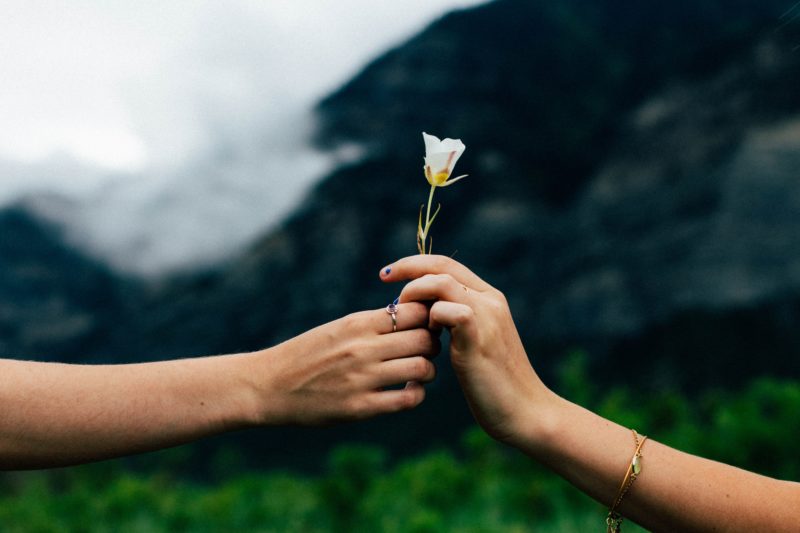Once, during a rough patch when I felt utterly hopeless, I quoted Elosie Cole’s poem “Borrowed Hope” in a session with my psychiatrist:
“Lend me your hope for awhile.
A time will come when I will heal,
And I will lend my renewed hope to others.”
He told me that recovery looks like a linear diagonal line from afar but if you zoomed in, you would see that it is made of ups and downs.
We have a little routine where if I’m feeling discouraged when I see him, I ask him “Can you lend me some hope? Tell me again why you believe that I will recover.”
His belief in me is a torch in the dark whenever I feel hopeless.
Early in treatment, he told me that one day I would greet him with a confident “Hello!”.
At that time, I shot him a disbelieving look.
Yet, I went from a shy, insecure and withdrawn person who could only make eye contact with great difficulty, to an animated person who now tends to talk too much.
“Recovery seems so far and distant,
The road to healing, a long and lonely one.”
When I was 7, I was already a shy and timid child. Years of school bullying and subsequent sexual harassment in my first job meant I have spent most of my 24 years with social anxiety.
 Social anxiety, as well as growing up “parentified” by being the emotional caretaker for my siblings, as well as being my mother’s confidante also meant I had only a few friends and never had close friends.
Social anxiety, as well as growing up “parentified” by being the emotional caretaker for my siblings, as well as being my mother’s confidante also meant I had only a few friends and never had close friends.
Because I was unrelentingly negative, the last of my friends walked away from me a few months after I was diagnosed. I became someone with no friends and no acquaintances.
Through interaction with my psychiatrist and the support of my psychologist, I began to make small changes in my life.
Initially, progress was measured in the amount of eye contact I made, and my “goals” in psychotherapy were really basic things such as “Eat at least 2 meals a day” and “Do something other than sleeping for 15 hours a day on weekends”.
Gradually, they have become more ambitious, such as meeting new people, and exploring what I might want to do in the future.
Some months ago, I learned that SAMH ran a peer support group. I mustered the courage to attend my first meeting.
A trained peer volunteer said to me, “Let us walk with you.” and offered support and encouragement.
As I am also a caregiver of a sibling with depression, I have learned that it is OK to tell people I may be having a hard time. That despite my fears of social rejection, by reaching out and risking vulnerability, I may find unexpected encouragement and connection.
Through peer support, I felt something I never quite experienced before — a glimpse of what a supportive friendship might feel like.
There are still rough times, of course. For example, I still have episodes of self-harm, still find it somewhat challenging to meet new people, and am still in the very initial stages of meeting people so as to form potential friendships, and still have periods of hopelessness.
However, in general, my sense of wellbeing and confidence has increased dramatically compared to early January this year.
I still have a long journey to walk, and I would like to say “Persevere. In time, your efforts will bear fruit.”
I hope my story might offer hope to someone. Reach out! Like someone told me, “You never walk alone.”
Justina is a 24 year old with Generalized Anxiety and Social Anxiety. She hopes to eventually do volunteer work and is hopeful that she can build a full and meaningful life.
Editor’s Note: Anxiety is a debilitating condition that can be tricky to explain to non-sufferers. It consists of both cognitive and physiological experiences, such as feelings of intense fear, uncontrollable trembling, cold sweats, dry mouth, heart palpitations etc. Sufferers of anxiety disorders often share that it is akin to facing your worse fears, every single day.
But our reader, Justina, shares that it is entirely possible to overcome those hurdles when one has good social support and appropriate treatment. Her story features how she developed Generalised Anxiety Disorder and Social Anxiety. With peer support, therapy and medication, she is a transformed person today. We’re so proud of you, Justina! Keep it up!

